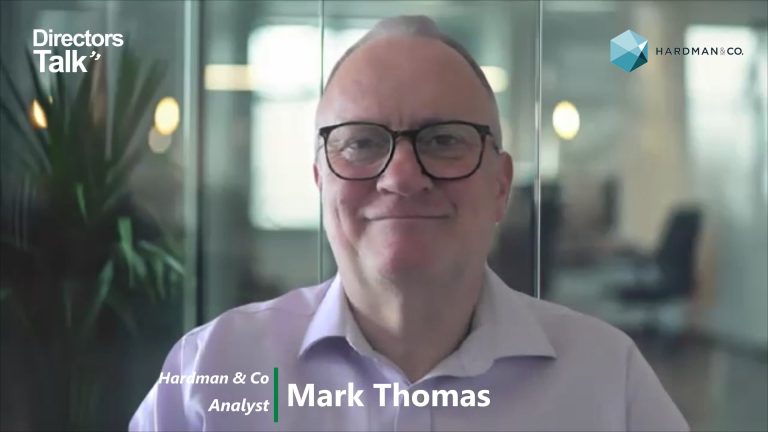City of London Investment Group (LON:CLIG) is the topic of conversation when Hardman and Co’s Analyst Brian Moretta caught up with DirectorsTalk for an exclusive interview.
Q1: City of London Investment Group recently announced its full year results, what were the main highlights?
A1: It was a steady year for the company, the final quarter of 2018 was quite weak for markets, as most people know, although emerging markets weren’t hit as hard as the developed markets.
The recovery is the first half of 2019 meant that CLIG’s funds under management finished the year comfortably up but the average for their financial year was actually lower than in the previous 2018 financial year. This meant revenue and profits were actually down with revenue falling 5.9% lower, undiluted EPS fell from 39.5p to 34.9p but there was a special dividend of 13.5p a share.
A good result I think under the circumstances of the market.
Q2: What roll did changes in the asset mix make?
A2: The company’s strategies involve investing in closed-ended funds. Historically the company was focussed almost entirely on emerging markets, a few years ago, it added a developed markets product and what is called Opportunistic Value, effectively a global tactical asset allocation product.
These have been successful and have been attracting assets and are now 22% of the total. However, these have a lower revenue margin than the existing business, so the average fee rate has come down a bit.
Q3: Is this increase a function of performance?
A3: Actually, the long-term performance in all four of their main areas was good.
Emerging markets had a very good year, but clients have been keeping their exposure to the area within tight limits. So, if EM does well, clients tend to rebalance assets away to other areas.
DM and OV actually had a weaker year in performance terms, though the long-term record remains good and they continue to attract net assets at a faster rate.
We expect the trend in the asset mix to continue.
Q4: The company has returned significant cash through the special dividend and share buybacks, how does this leave its capital position?
A4: The capital position remains very strong, even after the dividend and buybacks, there is £13.8 million of cash on the balance sheet. This is well in excess of their capital requirement.
The underlying dividend was 1.3 times covered so it continues to add to this surplus and we expect further returns of capital.
In the short term, further share buybacks seem most likely but dividend increases or further specials could be used too.
Q5: Over the year, there were changes at both the executive and board level at City of London Investment Group. How are those going?
A5: The transition seems to have been very smooth, there was a period of overlap with joint roles, but the new CEO and CIO have been involved in managing the business for a long time.
The departing CEO, Barry Ollif, will stay on in a consulting role for a couple of years.
Fund management is very process driven, with no individual stars, so investors should expect continuity.










































